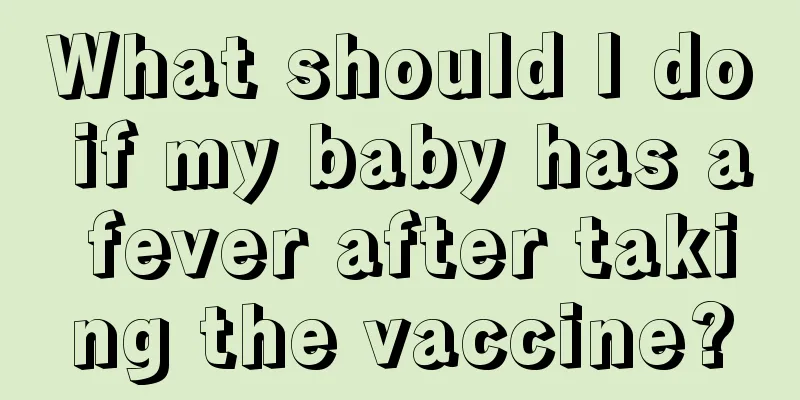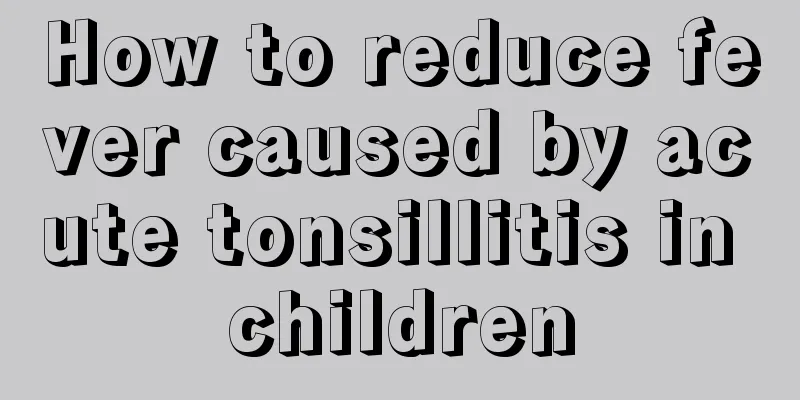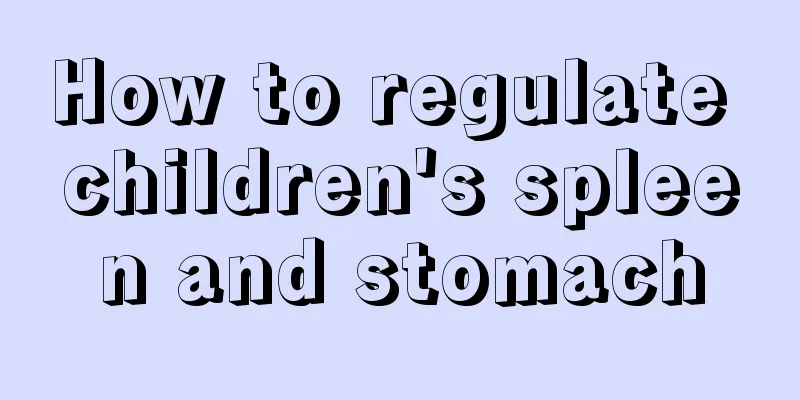What should I do if my baby has a fever after taking the vaccine?

|
Depending on the baby's developmental stage, the vaccines that need to be injected are also different. After injecting the diphtheria, pertussis and tetanus vaccine to the baby, some abnormal reactions are inevitable. For example, fever is a typical phenomenon. At this time, family members still need to remain calm and find ways to reduce the child's fever as soon as possible. What should I do if the baby has a fever after the diphtheria, pertussis and tetanus vaccine? The baby will have a fever after vaccination, and the fever will gradually subside on its own. At the same time, some physical cooling methods can be used to reduce the fever, such as more ventilation, attention to heat dissipation, and keeping the indoor temperature between 21℃ and 23℃; let the child rest in bed, sleep more, and ensure adequate sleep to help recovery from the disease. Open the blanket or take off too much clothes, wear loose clothes, and avoid wrapping with a quilt; feed the child frequently with warm water or vitamin C juice, 250 ml a night. Apply an ice pack to your forehead. When the fever is high, you can use alcohol to wipe the baby's joints, take a warm bath, place the child in warm water 4℃~6℃ lower than body temperature for 5~10 minutes, then wipe the whole body dry with a large towel and gently massage the skin until it turns red; you can also use 32℃~34℃ warm water, which is not hot enough for the skin on the inside of an adult's wrist, to bathe the child, focusing on scrubbing the forehead, neck, armpits, groin and limbs. The whole bathing time is 10~15 minutes, until the child's temperature drops to 38℃. The normal basal body temperature of children is 36.9℃~37.5℃. Generally, when the body temperature exceeds the basal body temperature by more than 1°C, it is considered a fever. Among them, low fever refers to body temperature fluctuating around 38°C, and high fever refers to body temperature above 39°C. Continuous fever for more than two weeks is called long-term fever. Basal body temperature refers to the rectal temperature, which is measured from the anus. Generally, the oral temperature is 0.3℃~0.5℃ lower than the rectal temperature, and the armpit and neck temperature is 0.3℃~0.5℃ lower than the oral temperature. If the temperature is below 38.5 degrees, do not take antipyretic medicine or get antipyretic injections, and let your baby drink plenty of water. If the fever is above 38.5 degrees, please ask a doctor immediately to confirm whether it is a viral infection or a bacterial infection. If it is a viral infection, use antiviral drugs (such as ribavirin); if it is a bacterial infection, use antibiotics (such as cephalosporins). Do not rush to reduce the fever. The fever is only a symptom and the cause of the disease must be found out. After parents know clearly what to do if their baby has a fever after taking the DPT vaccine, they don’t need to panic. In fact, fever is still very normal, but if the fever persists, it should not be taken lightly. In case of low fever, physical cooling methods can be used without taking medicine. If the high fever persists, it needs to be treated correctly under the guidance of a doctor. |
<<: Why does the baby always sneeze?
>>: What to do if the baby does not defecate for six days
Recommend
What are the precautions for baby head massage?
After the baby is born, parents will always pay a...
How to treat a baby's cold and cough
Babies have weak physical constitutions and are p...
What should a three-year-old child know?
Every child is the treasure of the family. Parent...
Can babies use air conditioning after childbirth?
The confinement period is a critical period for b...
What are the medicines for children to improve immunity?
Children's immunity is inherently weaker than...
What to do if a one-year-old child has diarrhea
Many newborn babies suffer from indigestion and d...
What is the reason why children often have leg pain?
People deal with some diseases to a greater or le...
Reasons why babies poop in the middle of the night
Every night, babies are particularly reluctant to...
What are the treatments for rubella in children?
Children affected by rubella need special attenti...
How to get children to eat more vegetables
Children nowadays generally have a problem of bei...
What are the disadvantages of children drinking milk before bed?
In daily life, many parents let their children dr...
What do children eat to grow taller?
We all know that height is very important to us. ...
What to do if the baby does not eat mother's milk
In life, many parents will find that their childr...
What to do if your three-month-old baby wakes up suddenly during sleep
It is normal for a three-month-old baby to wake u...
What should I do if my child has red bloodshot eyes?
Children's eyes are a part of their body that...









